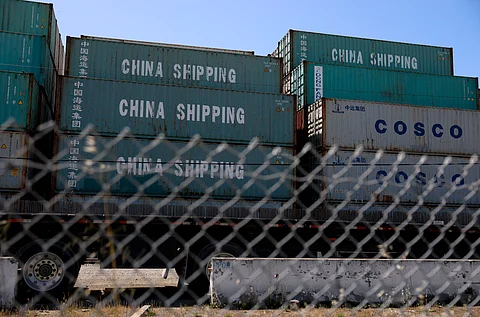
- NEWS
- the EDIT
- COMMENTARY
- BUSINESS
- LIFE
- SHOW
- ACTION
- GLOBAL GOALS
- SNAPS
- DYARYO TIRADA
- MORE

Retailers across the United States could soon face a familiar challenge: empty store shelves. In her article for Forbes magazine, retail market reporter Pamela N. Danziger—who focuses on luxury goods—discusses how industry experts warn that inbound shipments from China have plummeted since early April, raising concerns of major inventory shortfalls ahead of the back-to-school and holiday shopping season.
According to the report, the number of U.S.-bound cargo ships from China has dropped by about 40 percent, while container volumes are down by one-third. This sharp decline follows President Donald Trump’s announcement of a 145 percent tariff on Chinese imports.
Shipping analysts and economists caution that the situation may snowball into a crisis similar to the supply chain bottlenecks experienced during the height of the COVID-19 pandemic. John D. McCown, a non-resident senior fellow at the Center for Maritime Strategy, noted that 80 sailings were canceled in April—60 percent more than in any month during the pandemic.
Apollo Management economist Torsten Slok added that while retailers had pulled forward orders earlier this year to buffer against trade shocks, sustained reductions in imports could lead to noticeable product shortages in the coming months. "Expect ships to sit offshore, orders to be canceled, and well-run generational retailers to file for bankruptcy,” Slok warned in a research note.
Retailers typically begin stocking up for the second half of the year by mid-May. However, if shipping remains depressed into June, Slok predicts a “voluntary trade reset recession” could be triggered, with layoffs expected across logistics, trucking, and retail sectors.
The warning comes as CEOs of Walmart, Target, and Home Depot recently met with President Trump to express their concerns about the supply chain strain and rising costs linked to the new tariffs.
Even if the trade standoff is resolved swiftly, experts caution that delays in freight transit—typically 20 to 40 days from China to the U.S., plus up to 10 days for domestic delivery—could result in missed inventory windows.
McCown underscored the gravity of the situation, saying, “It’s a fair statement to say that the container shipping sector has never faced the sort of macro headwinds that it is now facing.”
